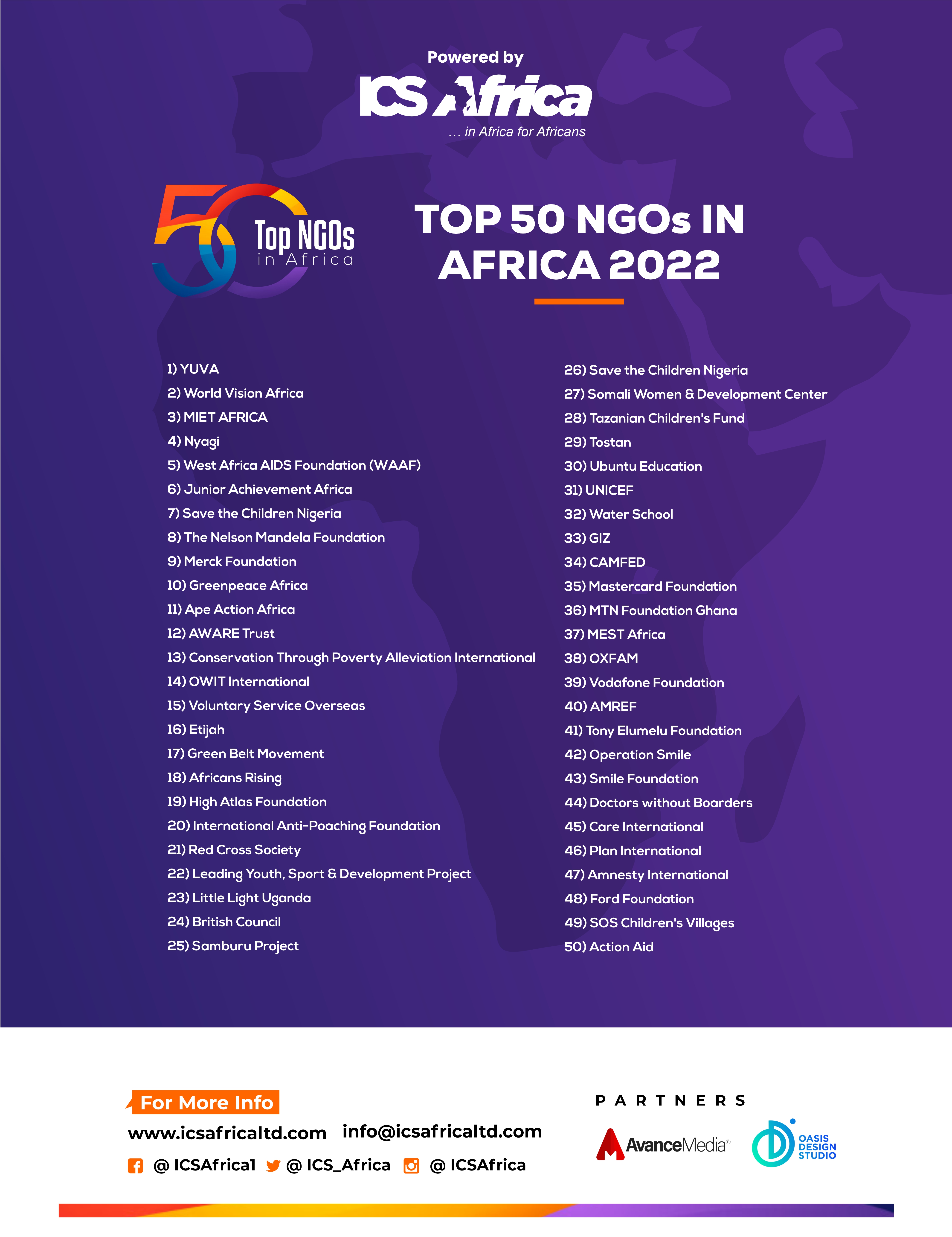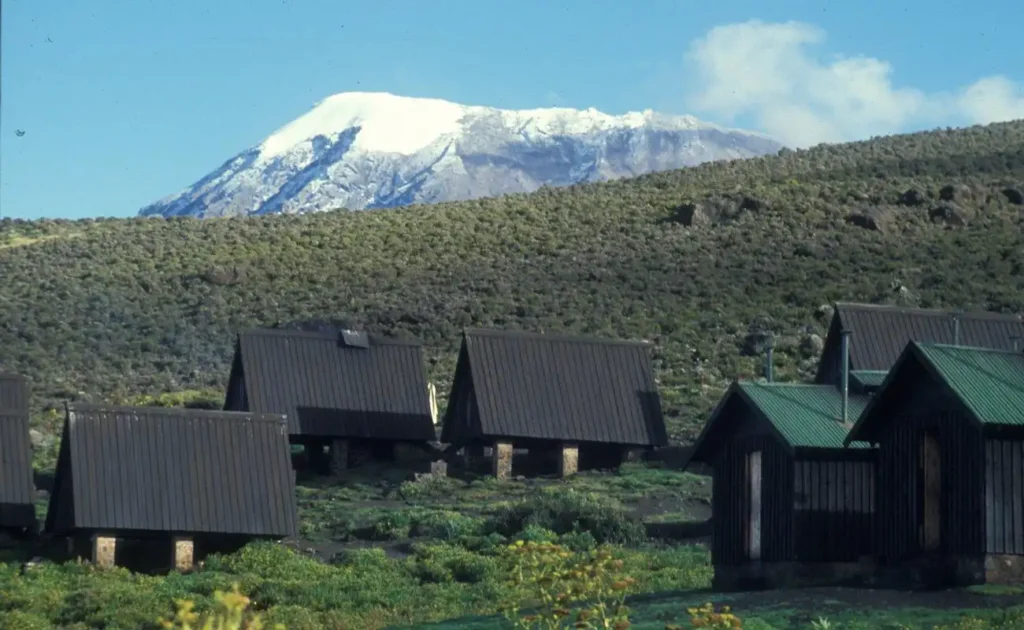Every year, countless professionals are drawn to the heart of East Africa, eager to contribute to impactful change. Tanzania, with its rich cultural tapestry and pressing developmental needs, calls for dedicated NGOs that truly make a difference. Among such organizations, some have carved a niche for their unparalleled commitment and effective programs.
One notable example is the Tanzania Educational and Micro-Business Opportunity (TEMBO) Trust, which has provided substantial support for women’s education and small businesses since its inception. Equally significant is the work of WaterAid, focusing on improving access to clean water and sanitation. According to recent data, WaterAid’s programs have reached over 2 million Tanzanians, underscoring the impactful nature of their initiatives.

What are the best NGOs to work with in Tanzania?
The Jane Goodall Institute stands out for its dedication to wildlife conservation. Founded by world-renowned primatologist Jane Goodall, the institute focuses on protecting chimpanzees and their habitats. Their projects also support local communities by promoting sustainable living. Volunteers can participate in various conservation activities. The institute’s impact on wildlife protection in Tanzania is significant.
WaterAid Tanzania is another leading NGO, specializing in improving water, sanitation, and hygiene. They work to ensure that communities have access to clean water and proper sanitation. Lack of clean water leads to diseases, so their efforts are vital. WaterAid’s work has positively affected millions of Tanzanians. Their projects often involve building wells and educating the public on hygiene practices.
ActionAid Tanzania focuses on empowering women and fighting poverty. They believe that involving women in development projects leads to stronger communities. ActionAid supports small businesses run by women and ensures they have access to education. Their programs aim to reduce gender inequality. Volunteers here can work on diverse projects, from teaching to community organizing.
Mkombozi helps street children and vulnerable youth by providing shelter, education, and support. Many children on the streets have no place to go, so Mkombozi offers a safe haven. They also run programs to reunite children with their families. The organization provides skills training to help youths get jobs. Working with Mkombozi is both challenging and rewarding.
1. Jane Goodall Institute – Focused on Wildlife Conservation
The Jane Goodall Institute is renowned for its commitment to wildlife conservation, particularly focusing on chimpanzees. Founded by Jane Goodall in 1977, the organization works tirelessly to protect these primates and their natural habitats. Their mission extends beyond research; it includes community-based conservation programs. These initiatives help local communities adopt sustainable practices. The impact of their work can be seen in various regions across Tanzania.
The institute runs several key programs that address both conservation and community needs. One of their flagship projects is the Roots & Shoots program, which educates young people about the environment. This program encourages students to participate in hands-on conservation activities. Another significant effort is the Chimpanzee Guardian Program. This initiative involves local villagers in monitoring chimpanzee populations, promoting a sense of shared responsibility.
The Jane Goodall Institute also collaborates with other conservation organizations to maximize its impact. These partnerships allow for shared resources and expertise in projects. Through joint efforts, they can tackle larger conservation challenges more effectively. The institute’s projects are often designed to be sustainable in the long term. This ensures that their positive impact remains even after project completion.
Volunteering with the Jane Goodall Institute offers a unique opportunity to contribute to meaningful conservation work. Volunteers can participate in various programs, from field research to educational outreach. They might find themselves tracking chimpanzee movements or teaching local schools about environmental stewardship. This experience is not only rewarding but also highly educational. It’s an excellent way to make a real difference in wildlife conservation.
2. WaterAid Tanzania – Enhancing Water and Sanitation
WaterAid Tanzania is dedicated to improving access to clean water, sanitation, and hygiene for communities. They tackle the pressing issue of water scarcity, which affects millions of people across the country. Their work involves building wells, installing water pumps, and creating sanitation facilities. By focusing on sustainable solutions, they ensure long-term benefits. Access to clean water significantly reduces the spread of diseases.
One of their main programs is the provision of clean water to schools and healthcare facilities. This ensures that children have access to safe drinking water, promoting better health and attendance. At healthcare centers, clean water and proper sanitation are critical for preventing infections. WaterAid also conducts hygiene education campaigns. These campaigns teach communities the importance of handwashing and other hygienic practices.
WaterAid Tanzania collaborates with local governments, other NGOs, and the communities themselves to maximize impact. By working together, they can reach more people and make their projects more effective. Their collaborative approach also enhances local ownership of the projects. This fosters sustainability and ensures that the communities maintain the facilities. WaterAid’s integrated approach has been pivotal in achieving lasting change.
Volunteering with WaterAid Tanzania offers a chance to be involved in life-changing projects. Volunteers can assist in various tasks, from on-the-ground construction to educational outreach. They might help build wells or teach about the importance of proper hygiene. The experience allows volunteers to contribute directly to improving community health. It’s a fulfilling way to make a tangible difference in people’s lives.
3. ActionAid Tanzania – Empowering Women and Fighting Poverty
ActionAid Tanzania is dedicated to empowering women and combating poverty through various influential programs. They believe that involving women in key development projects leads to stronger and more resilient communities. By offering women access to education, business opportunities, and health services, they help break the cycle of poverty. The organization provides training and resources for women to start their own small businesses. This economic empowerment leads to greater independence and community growth.
One of their significant initiatives is focused on women’s education. Providing girls with the opportunity to go to school improves their futures and benefits their families. ActionAid builds schools, offers scholarships, and supports educational programs. Educated women are more likely to invest in their families and communities. This creates a lasting impact that ripple through generations.
ActionAid also works on projects aimed at improving healthcare for women. They focus on prenatal and postnatal care to ensure healthy mothers and babies. Their health programs include offering medical check-ups and workshops on maternal health. ActionAid creates awareness about women’s health rights and provides access to necessary health facilities. This comprehensive approach ensures that women lead healthier lives and can actively contribute to society.
The organization fights poverty by supporting small-scale farmers, most of whom are women. They provide tools, seeds, and training in sustainable farming techniques. By improving agricultural productivity, ActionAid helps women farmers increase their incomes. More income means better food security and education for their children. These efforts contribute significantly to reducing poverty levels in rural areas.
Volunteering with ActionAid Tanzania provides an opportunity to be directly involved in these transformative projects. Volunteers can work in areas like teaching, healthcare, or community development. They might assist in setting up small businesses or help run educational workshops. Engaging with the local communities offers a deep understanding of the challenges they face. It’s a rewarding experience that creates lasting change.
4. The Foundation For Civil Society – Promoting Good Governance
The Foundation for Civil Society (FCS) plays a vital role in promoting good governance within Tanzania. This NGO focuses on strengthening civil societies by providing grants and building capacity. By supporting local organizations, FCS helps create a stronger civil society network. This network is essential for holding governments accountable and ensuring transparency. Their initiatives aim to foster democracy and uphold human rights.
One of the main programs of FCS is the Civic Space Initiative. This program supports freedom of expression, association, and assembly. They conduct workshops and training sessions to educate local communities about their rights. These educational efforts empower citizens to participate actively in the democratic process. The initiative also includes advocacy campaigns to influence policy changes.
FCS also collaborates with other organizations to maximize impact. These partnerships often involve joint projects and sharing resources. By working together, they can address larger issues more effectively. This collaborative approach leads to more significant, sustainable changes. It allows for a broader reach and a more substantial influence on governance.
The organization’s impact can be traced to various community-based projects across Tanzania. These projects often focus on areas such as community development, legal aid, and social accountability. FCS might fund a local group working on improving access to legal services. Others might focus on creating platforms for community engagement with local authorities. These efforts collectively contribute to a robust civil society.
Volunteering with FCS offers the chance to be involved in promoting democracy and good governance. Volunteers can participate in educational campaigns, research projects, or community outreach. They might assist in organizing workshops or help with advocacy efforts. This volunteer work is both challenging and fulfilling. It offers a unique perspective on the importance of civil society in governance.
5. Mkombozi – Supporting Street Children and Vulnerable Youth
Mkombozi is a dedicated organization focused on supporting street children and vulnerable youth in Tanzania. They provide essential services such as shelter, education, and healthcare. For many children, Mkombozi’s intervention is a lifeline, offering them hope and a chance for a better future. The organization’s holistic approach addresses not only immediate needs but also long-term development. This includes programs aimed at family reunification and community reintegration.
One of Mkombozi’s key initiatives is their residential care program. Here, children receive not just a safe place to stay but also regular meals and education. The program offers a sense of stability and security. It helps children recover from the trauma of living on the streets. This nurturing environment is crucial for their emotional and psychological well-being.
Education is another cornerstone of Mkombozi’s work. They run schools and offer vocational training to equip youth with essential skills. These educational opportunities open doors to brighter futures. By focusing on both academic and practical skills, Mkombozi prepares children for sustainable livelihoods. The organization believes that education is key to breaking the cycle of poverty.
Mkombozi also engages in outreach programs to connect with street children directly. These efforts involve building trust and providing immediate support. Outreach workers regularly visit areas where street children congregate. They offer basic necessities like food and clothing and encourage children to join Mkombozi’s programs. This proactive approach ensures that more children receive the support they desperately need.
Volunteering with Mkombozi offers a chance to make a meaningful impact on young lives. Volunteers can engage in a variety of activities, from tutoring to organizing recreational events. They work closely with children, offering guidance and support. This experience is both challenging and deeply rewarding. It provides a unique opportunity to contribute to the well-being and development of vulnerable youth.
Factors to Consider When Choosing an NGO to Work for in Tanzania
When deciding which NGO to work for in Tanzania, it’s crucial to consider the organization’s mission and values. Understanding what the organization stands for helps ensure that your personal goals align with theirs. This alignment is essential for job satisfaction and long-term commitment. Different NGOs may focus on various areas such as education, health, or conservation. Aligning with an organization whose cause resonates with you will make your work more fulfilling.
The impact and reputation of the NGO are also important factors to evaluate. Research the organization’s history, achievements, and challenges faced in the past. Reviews from previous employees can provide insights into its working environment and impact. An NGO with a proven track record of success can offer a rewarding experience. This information can be gathered from their annual reports or by speaking directly with current staff members.
Funding sources and financial stability are other crucial aspects to investigate. A financially stable NGO is more likely to have sustainable projects and reliable support systems for its employees. Understanding where the funding comes from can also indicate ethical practices within the organization. Transparency in financial dealings is often a marker of an accountable and trustworthy NGO. It’s beneficial to check their financial reports or funding acknowledgments.
- Alignment with personal values
- Impact and reputation
- Funding sources
- Sustainability of projects
- Opportunities for professional growth
Consideration should also be given to opportunities for professional growth within the organization. NGOs that offer training programs, career development plans, and growth opportunities can be more appealing. These organizations invest in their staff’s future by providing them with skills useful both within the NGO sector and beyond it. Assess if there are clear pathways for career advancement.
The location of the NGO’s operations might affect your decision too. Living conditions, safety, cultural environment, and accessibility could either enrich your experience or pose challenges. It’s important to prepare for these aspects when planning your move to Tanzania.
The Impact of NGOs on Tanzania’s Development
NGOs play a significant role in Tanzania’s development by addressing various social, economic, and environmental issues. These organizations fill gaps left by government services, particularly in remote and underserved areas. They focus on improving education, healthcare, and clean water access. Their efforts contribute to the overall well-being and development of communities. This support is essential for sustainable growth.
Educational programs led by NGOs have made a noticeable impact. Many NGOs build schools, offer scholarships, and provide educational materials. These initiatives increase literacy rates and improve educational outcomes for children. Educated individuals are better equipped to participate in the local economy. This leads to a knowledgeable and skilled workforce, which is vital for national progress.
In the healthcare sector, NGOs have introduced critical interventions. They run clinics, provide medical supplies, and train local health workers. These services are especially important in rural areas where healthcare facilities are scarce. By improving access to healthcare, NGOs help reduce mortality rates and prevent diseases. This contribution significantly enhances the quality of life.
Many NGOs also address pressing environmental issues. They engage in conservation efforts, like reforestation and wildlife protection. These activities not only protect Tanzania’s rich biodiversity but also promote sustainable land use practices. Efforts in environmental preservation ensure the country’s natural resources are available for future generations. Conservation projects often include community education on sustainable practices.
NGOs help in economic development by supporting small businesses and entrepreneurship. They provide training, financial resources, and market access for small-scale entrepreneurs. This support helps create jobs and stimulate local economies. Economic growth from these initiatives leads to poverty reduction and improved living standards. It’s a holistic approach that impacts various aspects of community life.
How to Get Involved with NGOs in Tanzania
Getting involved with NGOs in Tanzania offers numerous opportunities to make a positive impact. The first step involves researching organizations that align with your interests and values. Understanding their mission, activities, and impact areas is crucial. Websites, social media, and annual reports are good sources of information. Reach out to current volunteers or employees to gain insights into their experiences.
Once you have identified suitable NGOs, the next step is to consider the type of involvement you want. There are various ways to contribute, such as volunteering, internships, or full-time positions. Volunteering can range from a few weeks to several months. Internships often provide hands-on experience and can be a pathway to permanent roles. Full-time positions require a long-term commitment and offer more substantial involvement.
Applying for a role involves preparing a compelling application. Tailor your resume and cover letter to highlight relevant skills and experiences. Emphasize any past volunteer work, internships, or professional experiences that align with the NGO’s mission. Being specific about how you can contribute can make your application stand out. It’s also helpful to show enthusiasm and a genuine interest in the organization’s work.
Many NGOs in Tanzania value on-ground experience and knowledge of local issues. Before applying, consider taking part in short-term volunteer programs. These programs provide a practical understanding of the challenges and needs on the ground. They also allow you to build connections within the NGO sector. Field experience can be a significant advantage during the application process.
Networking can also play a key role in getting involved. Attend events, workshops, or seminars related to NGO work and development issues. These platforms offer opportunities to meet professionals and learn about new openings. Engaging with the community helps you understand the local context better. It also demonstrates your commitment to the cause.
Finally, be prepared for the challenges and rewards of working with an NGO. The work can be demanding but incredibly fulfilling. It requires resilience, adaptability, and a passion for making a difference. The experience gained while working with an NGO can be invaluable, enriching both professionally and personally.
Future Prospects for NGOs in Tanzania
The future looks promising for NGOs in Tanzania as they continue to play critical roles in development. As the country grows, the need for specialized services and innovative solutions increases. NGOs are stepping up to meet these demands through technology and community empowerment. Their sustainable approaches ensure long-term impact. This progress positions them as essential partners in national development.
Technological advancement offers new opportunities for NGOs. By incorporating modern technologies, they can enhance the efficiency and reach of their programs. For instance, mobile health (mHealth) initiatives allow for better healthcare delivery in remote areas. Digital platforms also enable wider access to educational resources. The use of technology in agriculture can improve productivity and food security.
Community-based projects are expected to gain more importance. By involving locals in planning and implementation, NGOs can develop tailored solutions that address specific needs. This approach not only empowers communities but also ensures project sustainability. Programs focusing on local leadership development are likely to increase. These initiatives help build a stronger civil society that can advocate for their own needs.
Growing partnerships between NGOs and the private sector also show potential. Collaboration with businesses can provide necessary funding and resources for larger projects. Companies are increasingly interested in corporate social responsibility, making them valuable allies. These partnerships can create multi-faceted development projects that cover various aspects such as education, health, and environment. Joint efforts can amplify the positive effects of their work.
Future challenges include maintaining financial stability and navigating changing political landscapes. Sustained funding is crucial for ongoing projects and future initiatives. NGOs need to diversify their funding sources to remain flexible and resilient. Political changes can also affect their operations, so adaptive strategies are essential. By staying informed and agile, NGOs can continue their important work despite uncertainties.




